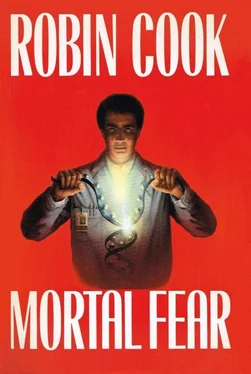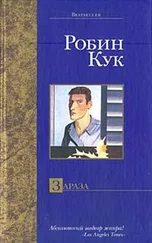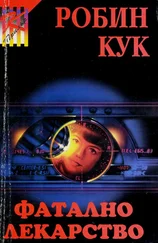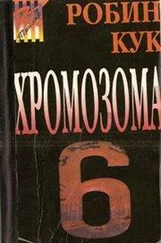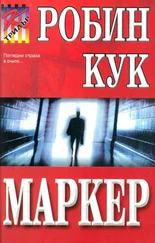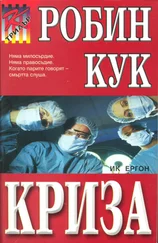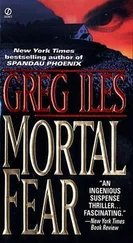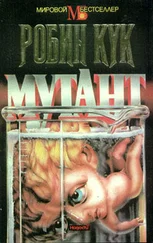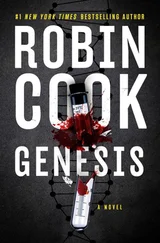“What were the symptoms?” asked the detective. He’d taken out a small pad.
“Fatigue, stomach upset, joint discomfort. I thought he might have had a fever, but I couldn’t be sure.”
“What did you think about these symptoms?”
“They worried me,” Jason admitted. “I told him that it might be better if we met in my office so I could have run a few tests. But he insisted we meet away from the hospital.”
“And why was that?”
“I’m not sure.” Then Jason went on to describe what was probably Hayes’s paranoia and his statements about having made a breakthrough.
After writing all this down, Curran looked up. He seemed more alert. “What do you mean, ‘paranoia’?”
“He said that someone was following him and wanted him and his son dead.”
“Did he say who?”
“No,” Jason said. “To be honest, I thought that he was delusional. He was acting strangely. I thought he was about to decompensate.”
“Decompensate?” Curran asked.
“Nervous breakdown,” Jason said.
“I see,” Curran said, returning to his note pad. Jason watched as he wrote. He had the curious habit of licking the end of his pencil at odd intervals.
At that moment another figure appeared in the doorway. She walked around the table to Jason’s right. Both Jason and the detective got to their feet. The newcomer was a diminutive woman barely five feet tall. She introduced herself as Dr. Margaret Danforth. In contrast to her size, her voice resounded in the small room.
“Sit down,” she commanded, smiling at Curran, whom she obviously knew.
Jason guessed the woman to be in her upper thirties. She had small, delicate features with highly arched eyebrows that gave her an innocent appeal. Her hair was short and very curly. She wore a dark, demure dress with a lace collar. Jason had trouble associating her appearance with her position as one of the medical examiners of the city of Boston.
“What’s the problem?” she asked, getting right to business. There were dark circles under her eyes, and Jason guessed she’d been working since early that morning.
Detective Curran tipped his chair back and teetered. “Sudden death of a physician in a North End restaurant. Apparently he vomited a large amount of blood...”
“Coughed up would be a better term,” interrupted Jason.
“How so?” Detective Curran asked, coming forward with a thump. He licked the end of his pencil to make a correction.
“Vomiting would mean it came from his digestive system,” Jason said. “This blood obviously came from his lungs. It was bright red and frothy.”
“Frothy! I like that word,” Curran said. He bent over his pad, making a correction.
“I presume it was arterial blood,” Dr. Danforth said.
“I believe so,” Jason said.
“Which means...?” Curran questioned.
“Probably a rupture of the aorta,” Danforth answered. She had her hands folded in her lap as if she were at a tea party. “The aorta is the main vessel that leaves the heart,” she added for Curran’s benefit. “It carries oxygenated blood out to the body.”
“Thank you,” Curran said.
“Sounds like either lung cancer or aneurysm,” Danforth added. “An aneurysm is an abnormal out-pocketing of the blood vessel.”
“Thank you again, Curran said. ”It’s so handy when people know I’m ignorant.”
Jason had a momentary flash of Peter Falk playing Detective Columbo. He was quite sure that Curran was anything but ignorant.
“Would you agree, doctor?” Danforth asked, looking directly at Jason.
“I’d vote for lung cancer,” Jason said. “Hayes was a prodigious smoker.”
“That does raise the probability.”
“Any possibility of foul play?” Curran asked, looking at the medical examiner from under his heavy lids.
Dr. Danforth gave a short laugh. “If the diagnosis is what I think it is, the only foul play involved would have been perpetrated by his Maker — or the tobacco industry.”
“That’s what I thought,” Curran said, flipping his notebook closed and pocketing his pencil.
“Are you going to do an autopsy now?” Jason asked.
“Heavens no,” Dr. Danforth said. “If there were some pressing reason, we could. But there isn’t. We’ll get to it first thing in the morning. We should have some answers by ten-thirty or so, if you’d like to call about then.”
Curran put his hands on the table as if he were about to stand. Instead, he said, “Dr. Howard has alleged that the victim thought someone was trying to kill him. Am I right, doctor?”
Jason nodded.
“So...” Curran said. “Could you keep that in mind when you do the autopsy?”
“Absolutely,” Dr. Danforth said. “We keep an open mind in all cases we do. That’s our job. Now, if you’ll excuse me, I’d like to get home. I haven’t even had a chance to eat dinner.”
Jason felt a mild wave of nausea. He wondered how Margaret Danforth could feel hungry after spending her day cutting up corpses. Curran actually said as much to Jason as they descended to the first floor. He offered Jason a lift, but Jason told him he was expecting a friend. No sooner had he said it than the street door opened and Shirley walked in. “Some friend,” Curran whispered with a wink as he left.
Once again Shirley stood out like a mirage. For entertaining she’d dressed in a red, fitted, silk shirt-dress, cinched with a wide black leather belt. Her appearance bespoke so strongly of life and vitality that her presence in the dirty morgue was a collision of opposites. Jason had the unnatural urge to get her out of there as soon as possible, lest some evil force touch her. But she was resistant to his urging. She’d thrown her arms around him and pressed his head against hers in a genuine show of sympathy. Jason melted. His response surprised him. He found himself fighting back tears like an adolescent. It was embarrassing.
She pulled back and looked him in the eyes. He managed a crooked smile. “What a day,” he said.
“What a day!” she agreed. “Any reason you have to stay here?”
Jason shook his head.
“Come on, I’m taking you home,” she said, hurrying him outside to where her BMW was parked in a no-parking zone. They got in and the car roared to life.
“Are you okay?” Shirley asked as they headed toward Massachusetts Avenue.
“I’m much better now.” Jason looked at Shirley’s profile as the city lights illuminated it in flashes. “I’m just overwhelmed by all the deaths. As if I should be doing something better.”
“You’re too hard on yourself. You can’t take responsibility for everyone. Besides, Hayes wasn’t your patient.”
“I know.”
They drove for a while in silence. Then Shirley said, “It is a tragedy about Hayes. He was pretty close to a genius, and he couldn’t have been more than forty-five.”
“He was my age,” Jason said. “He was in my class in medical school.”
“I didn’t know that,” Shirley said. “He looked a lot older.”
“Especially lately,” Jason said. They passed Symphony Hall. Some affair was just getting out, and men in black tie were emerging on the front steps.
“What did the medical examiner have to say?” Shirley asked.
“Probably cancer. But they aren’t going to do the autopsy until morning.”
“Autopsy? Who gave the authorization?”
“No need if the medical examiner thinks there is some question about the death.”
“But what kind of question? You said the man had a heart attack.”
“I didn’t say it was a heart attack. I said it was something like that. At any rate, it’s apparently protocol for them to do a postmortem on any unexpected death. A detective actually questioned me.”
Читать дальше
